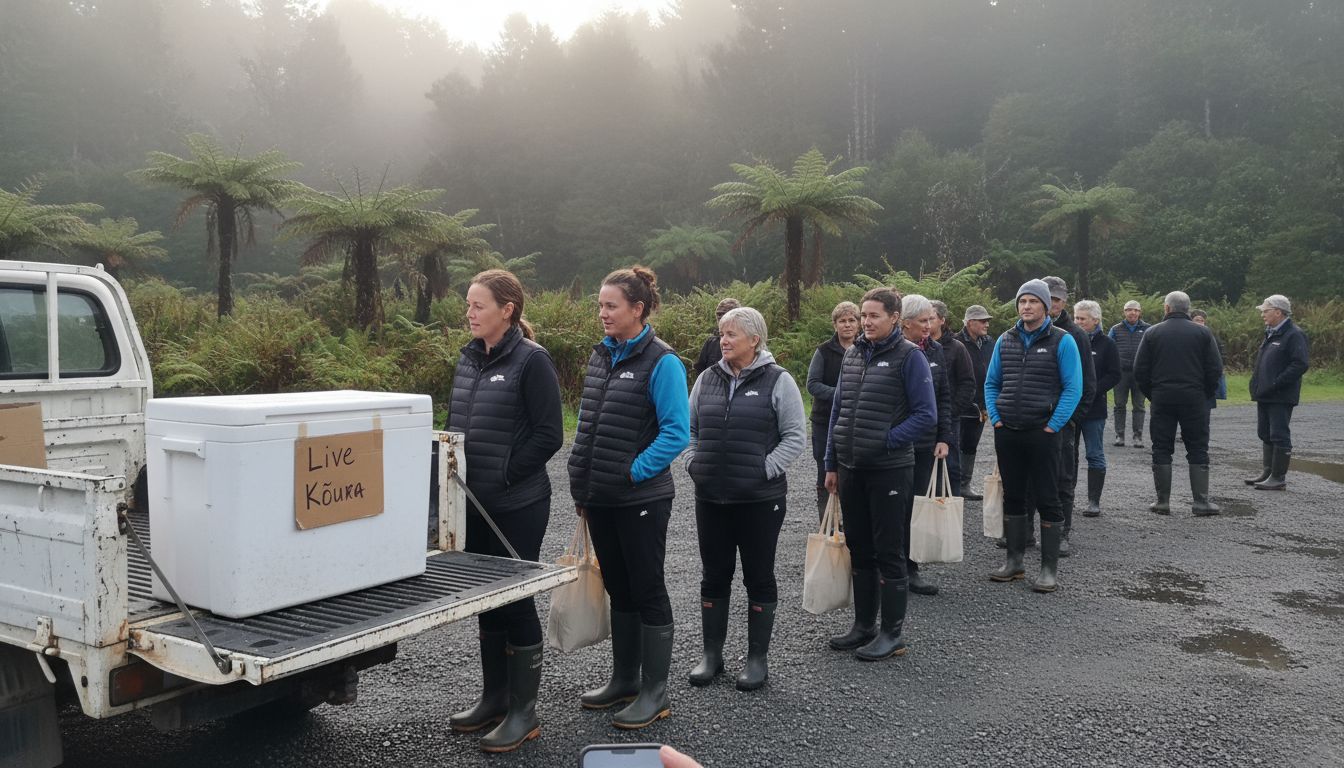Why Kōura Don't Need Influencers: The Rise of Hyper-Local Brand Love

Flick through your feed and you’ll see it: yet another squeaky-clean #partnership post, probably with someone holding up a vitamin smoothie in activewear, smiling like they’re trying to sell enlightenment. Now shift your gaze to somewhere stranger: the Matakana Farmers’ Market carpark. That’s where I accidentally stumbled on the future of branding. The unexpected anti-campaign that caught my eye? A roadside chilly bin, handwritten sign taped on the side: 'Live Kōura. Don’t shake.'
No logo. No QR code. But the entire whānau ahead of me in line was buzzing about it like it was AirPods on launch day. Turns out, it belonged to a retired couple who’ve been hauling crayfish inland every Saturday for years. No social media presence, no Google results. Just perfect timing, perfect product. A reputation built crab-pot by crab-pot. That’s hyper-local brand building, and it’s quietly rewriting the rules.
What we’re seeing—whether it’s pōhutukawa honey in Reefton or cult peanut butter-only subscription services in Dunedin—is a hunger for proximity. Not just physical, but emotional. Brands that show up like real people. Ones you might see at the pub quiz on Thursday. The market for pretence is shrinking. And too many agencies are still throwing influencer money into the wind, praying for reach.
The smart marketers in 2025 aren’t targeting cities. They’re targeting streets. They’re making merch that smells like salt spray. They’re knocking on literal doors. Which brings me back to the Kōura. It never needed an influencer. It just needed the right people to talk about it on the right mornings with a chilly bin and a bit of tape. That’s not a one-off. That’s the next wave. Start thinking smaller.
No logo. No QR code. But the entire whānau ahead of me in line was buzzing about it like it was AirPods on launch day. Turns out, it belonged to a retired couple who’ve been hauling crayfish inland every Saturday for years. No social media presence, no Google results. Just perfect timing, perfect product. A reputation built crab-pot by crab-pot. That’s hyper-local brand building, and it’s quietly rewriting the rules.
What we’re seeing—whether it’s pōhutukawa honey in Reefton or cult peanut butter-only subscription services in Dunedin—is a hunger for proximity. Not just physical, but emotional. Brands that show up like real people. Ones you might see at the pub quiz on Thursday. The market for pretence is shrinking. And too many agencies are still throwing influencer money into the wind, praying for reach.
The smart marketers in 2025 aren’t targeting cities. They’re targeting streets. They’re making merch that smells like salt spray. They’re knocking on literal doors. Which brings me back to the Kōura. It never needed an influencer. It just needed the right people to talk about it on the right mornings with a chilly bin and a bit of tape. That’s not a one-off. That’s the next wave. Start thinking smaller.